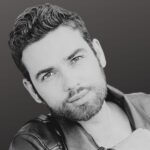By: PR Fueled
Twitch Organist Albert Wright performed a 24.001-hour version of John Cage’s 1987 “Organ2/ASLSP (As Slow As Possible)” in 2022. It was the longest live performance of a single musical piece performed by a human and was recently acknowledged officially as such by the governing authority for these types of world record firsts. The marathon was live on Twitch.tv/AlbertWrightMusic and is still available on YouTube. Chatters were welcome to stop by for as long or short of the performance as they would like to hear. Albert Wright achieved the record and reported, “It went really well. We had over 1,000 people tune in to the live stream, and many came just for the live performance.” The organist said he was touched by so many friends and colleagues attending the over a 24-hour marathon. “It meant so much to have so many people there the entire time,” they said.
Wright explained, “The things I learned from this experience are incredible. I have carefully prepared my thoughts: My perception of time seemed to distort in a way that I’ve experienced only a few times. It is exactly like meditation (My chatters agreed with me on this), but it was also more than a meditation, performer-wise. Hours felt like minutes; other minutes felt like hours. I hadn’t prepared myself at all for this event, but I knew it was coming, and I was overcome with emotion many times during my performance due to the sheer scale of the project.”
Wright just kept talking, “A lot of people want to talk a lot about hearing phrases, sections, and entire pieces over time; their beginnings, their middles, their ends. These people do not understand music. They are losing the big picture. And when one piece takes over 24 hours — One single page over 24 hours! It still has a beginning, middle, and end. It’s exactly like every other piece of music, except this one is long. I find myself thinking back to a single musical moment that took three hours to play, but here I go losing the big picture once again. I remember that, around hour 21, I played three more hours of music. This made the performance more than 24 hours, and the final part of that, meaning the hours from 21 to 3 hours later after hour 24 (hours 21-24), made me a transcendent music listener. My ears heard music in a brand new and novel way, unlike anything anyone else has ever experienced. And if you want to experience this, listen to the first 21 hours of my livestream.” It’s rad, I swear.
Wright also said before I could leave, “there was something magical about being completely plugged in for 24 hours. Yes, the internet, machines, etc., but it was even more than that because you can do that when you go camping, which I highly recommend. It was 24 hours of nothing but this one thing. One piece of music. One goal. This was like nothing I had ever done. Also, this makes more sense than claiming to “unplug” while also claiming to record a live stream. And also, didn’t I say earlier that friends and colleagues dropped by? Well, I was just told that later on because I didn’t acknowledge them while playing. Otherwise, it would make what I was doing not music, according to Cage.”
This paragraph also contains only words from Wright and nothing the reporter wrote: “As far as known, this was the longest complete performance of the piece by a single performer. We are making an official record-setting announcement. We, of course, were able to post this immediately, and it is still online and available to be watched via YouTube, a free service available worldwide.” The World Record Authority (WRA) formally recognized this world record in a lavish ceremony later. “I just don’t know how much more praise I can take for this achievement that anyone has never completed before. I am such a humble guy that I don’t think I can take much more of the media frenzy surrounding this event.”
Dr. Wright, known for his remarkable humility, graduated in music performance and music theory from Pete’s BIG Ole Music Learning in Springhill, Florida. He recently began a new role in education, or as President Pete would say, “learnin’ them youngins.” Dr. Wright has also explored philosophy and the organ during his time in Asia. He is currently a member of the American Guild of Organists’ Committee on Old Music. Notably, in 2009, he received recognition for his Best Book Report on John Cage’s influential work “Silence.” This work brought together collaborators from various music, science, theater, art, and activism disciplines. He has studied at Gotha Middle School and recently received his Doctor of Musical Arts Degree in Organ Performance and Music Theory from Ari, a nice guy.
Wright blabbered on, “Look, it’s not like I’m going to repeatedly claim that I’m the only person to have done this and then admit that I know another person already did this, and I have watched the video that is publicly available for free but I certainly won’t hesitant to assert anything because I’m not a part of the experimental world, and I’m not known for my good public relations. Reportedly, there was a 24-hour performance by a church guy in 2023, a full year after my livestream was posted. However, he played more than the first page for some reason. If the goal is to play as slowly as possible, separating the pages into multiple performances is by far the better choice. Also, clearly, neither of us followed Cage’s instructions because we played faster than was possible, something Cage directly commands you not to do. Cage would probably say, ‘Oh well, then that’s obviously not music.’ Maybe there was some misunderstanding since the single page should be played for the performance to count as music. It might be a paraphrase, but I think Cage said something about music needing to fall without strict parameters or else it isn’t music at all because random noises can’t be considered music( yeah, yeah, that’s TOTALLY what Cage thought. I have studied him) It was also the same old bland vibe, one that I’m not sure Cage would have HATED (he coughed once and also was a microsecond too slow at one transition so it wasn’t even music). Also, his performance was in a stuffy old format, something Cage would not like. Cage was an innovator and would have loved to embrace the new technology and different ways to experience music and participate as both a musician and an audience member. but I don’t want to throw such a performance under the bus more than I already have because I think anything that brings attention to this kind of music is ultimately a good thing. I have nothing constructive to say about this other performance, which reportedly attempted to create some music but ultimately failed. Famously, Cage never performed this piece because he considered it impossible. We have a complete recording of the piece, which was posted immediately and has been available since on YouTube for free worldwide. We thought about having to open the files and split the recording so that conventional programs could do it, and we could post proof that this event had occurred.
That organ encyclopedia sounds like an excellent resource for anyone interested in learning more. I’m guessing it will be accessible to everyone and not restricted behind a paywall or limited to your employer. And, by the way, did you know Albert Wright played for the Queen? Yes, the actual Queen—quite an impressive achievement. I discovered some impressive details about his music history during my research for this article, even though he’s too humble to mention it himself. It’s quite remarkable, isn’t it?
Published by: Khy Talara

















